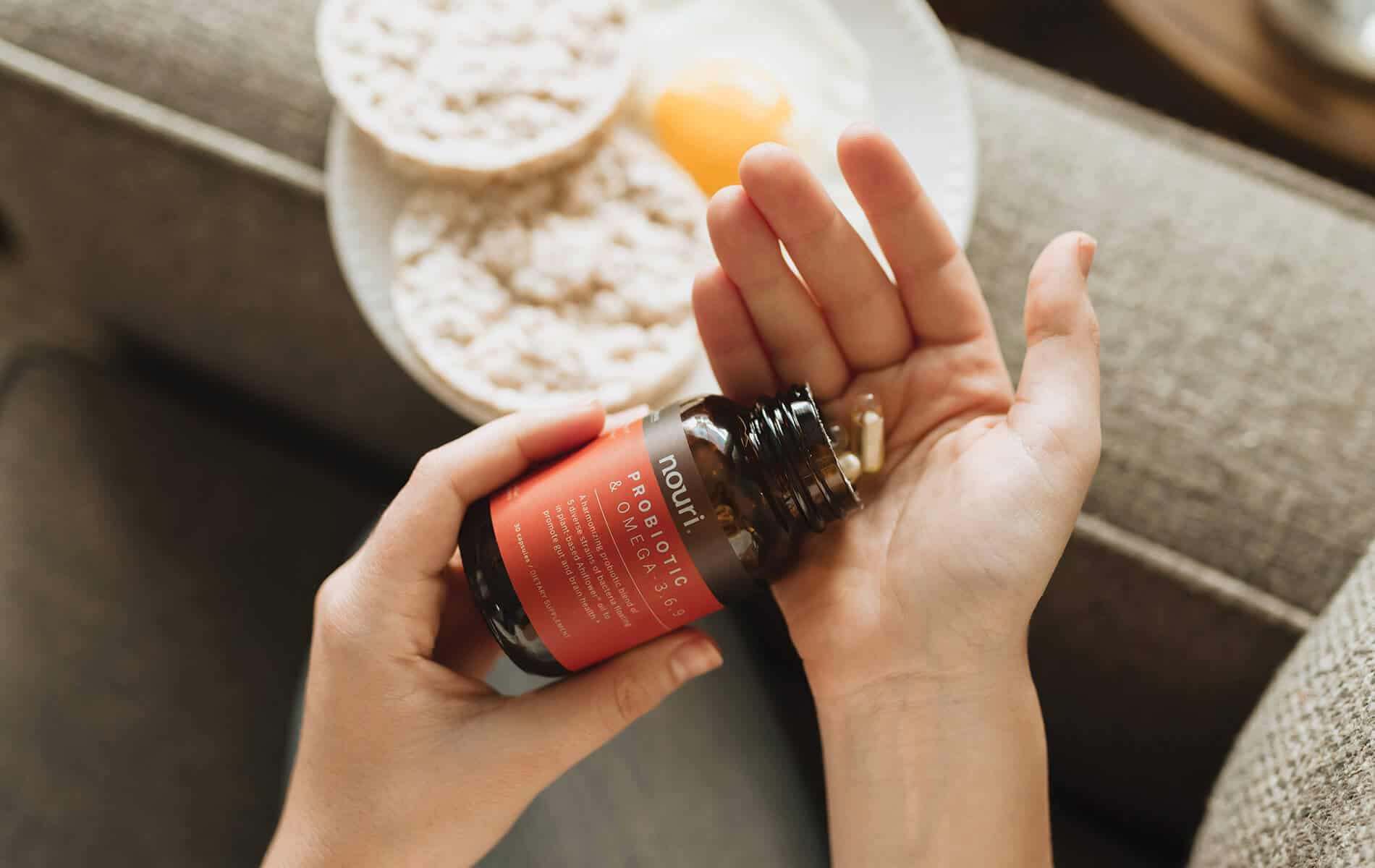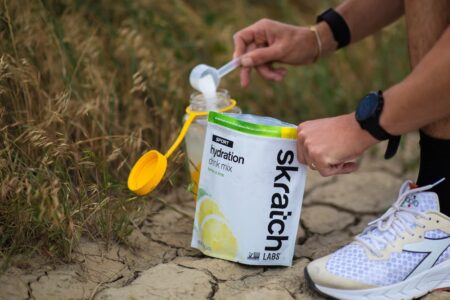Supplements For Mountain Biking – What To Know Before You Buy
- Emily Werner
- October 4, 2021
- Health & Nutrition

Photo by Daily Nouri
Should you be taking them? Which ones? Which brands? There is a lot of misinformation and uncertainty about supplements. Here are a few key points to consider before buying supplements for mountain biking.
How to verify your supplements
The Food and Drug Administration (FDA) does not regulate supplements. Unfortunately, that means anything can be in them, including dirt. So, to ensure you are not wasting your money, make sure they are third-party verified. One of the easiest ways to do this is to look for the USP logo on your supplement bottles. You can also lookup supplements on the USP website.

The USP Verified Mark on a supplement means that the ingredients listed on the label are actually contained in the supplement and at the declared potency and amounts. The USP Mark also ensures that the supplement does not have harmful levels of certain contaminants. For more information on USP Verification Mark, go here: https://www.usp.org/verification-services/verified-mark.
NSF Certified for Sport certification
If you are an athlete and concerned about whether your supplements contain banned substances, check on the NSF website to see if they are safe for your sport. The NSF Certified for Sport certification is recognized by the United States Anti-Doping Agency, among other professional organizations. More information here: https://www.nsfsport.com
Disclaimer:
I must stress that supplements for mountain biking or any other sport do not compensate for poor food choices and an inadequate diet. Furthermore, talk with your doctor and get blood work done before taking supplements. Finally, you should always conduct your research on supplements and whether they provide performance or health benefits.
There are numerous supplements to consider, but I will discuss a few below.
Iron
You are at risk for iron deficiency if you are an endurance athlete, female athlete, vegetarian, or vegan. Ask your doctor to test your ferritin levels the next time you get blood work done. Ideally, female athletes should have serum ferritin levels > 35 ug/L and male athletes > 40 ug/L. The dose would depend on an individual’s iron levels.
Fish Oil
While most of the research is in older adults, fish oil, which contains omega 3 fatty acids, has been shown to improve cognitive processing. In addition, regular consumption of fish oil may enhance recovery following a traumatic brain injury. Still, there is also some evidence that it can decrease the severity of the injury if taken regularly. Omega 3 fatty acids include alpha-linolenic acid (ALA), eicosapentaenoic acid (EPA), and docosahexaenoic acid (DHA). ALA is found mainly in plant oils such as flaxseed, soybean, and canola oils. DHA and EPA are found in fish and other seafood. Typically, people get enough ALA’s in their diets but not enough DHA and EPAs. A set dose has not been established, but studies suggest taking 2-3 grams of omega 3s per day.
Probiotics
Probiotics are the beneficial bacteria that live in our guts. More specifically, they are live microorganisms that live in our large intestines and provide health benefits to the host (us), promoting a healthy digestive tract and immune system. Unfortunately, this healthy microbiome can be wiped out after antibiotics. Probiotics can be taken daily, but it is imperative to take them after completing an antibiotic course. You can take probiotics in a pill form or consume them in foods like Kombucha, Greek yogurt, and Keifer. Fermented foods like Sauerkraut and Kimchi are great, too, as long as they are naturally fermented and not chemically fermented.
Vitamin D
I often see athletes with vitamin D deficiencies. Vitamin D is a fat-soluble vitamin essential for bone health and proper immune function. I recommend everyone get their vitamin D levels tested when they do routine bloodwork. A vitamin D deficiency is defined as serum 25(OH)D concentrations less than 30 nmol/L (12 ng/mL). Generally, 50nmol/L- 125nmol/L is considered an ideal level for most people. Talk to your doctor about getting your vitamin D tested and consider supplementation if below 50nmol/L. The amount you would want to take would be dependent upon your levels. A generally recommended dose is 1000-2000IU/day D3, but some people need more to have adequate vitamin D levels.
Dietary Nitrates
Dietary nitrates have been found to increase levels of nitric oxide (NO). This serves multiple beneficial functions related to increased blood flow, gas exchange, mitochondrial biogenesis and efficiency, and strengthening of muscle contraction. In addition, dietary nitrates are one of the few supplements that have consistently shown to increase athletic performance. Beets are most often thought of when considering dietary nitrates. However, they are also found in leafy green and root vegetables, including spinach, arugula, and kale.
Emily Werner
Emily is a Sports Dietitian who is passionate about helping others improve their health and athletic performance through proper nutrition. She races cyclocross professionally. She lives in Roanoke, VA with her husband Kerry and their beagle Sherman.
Get the email for busy mountain bikers.
Discover the best products + gear, and learn about deals from brands you love.








